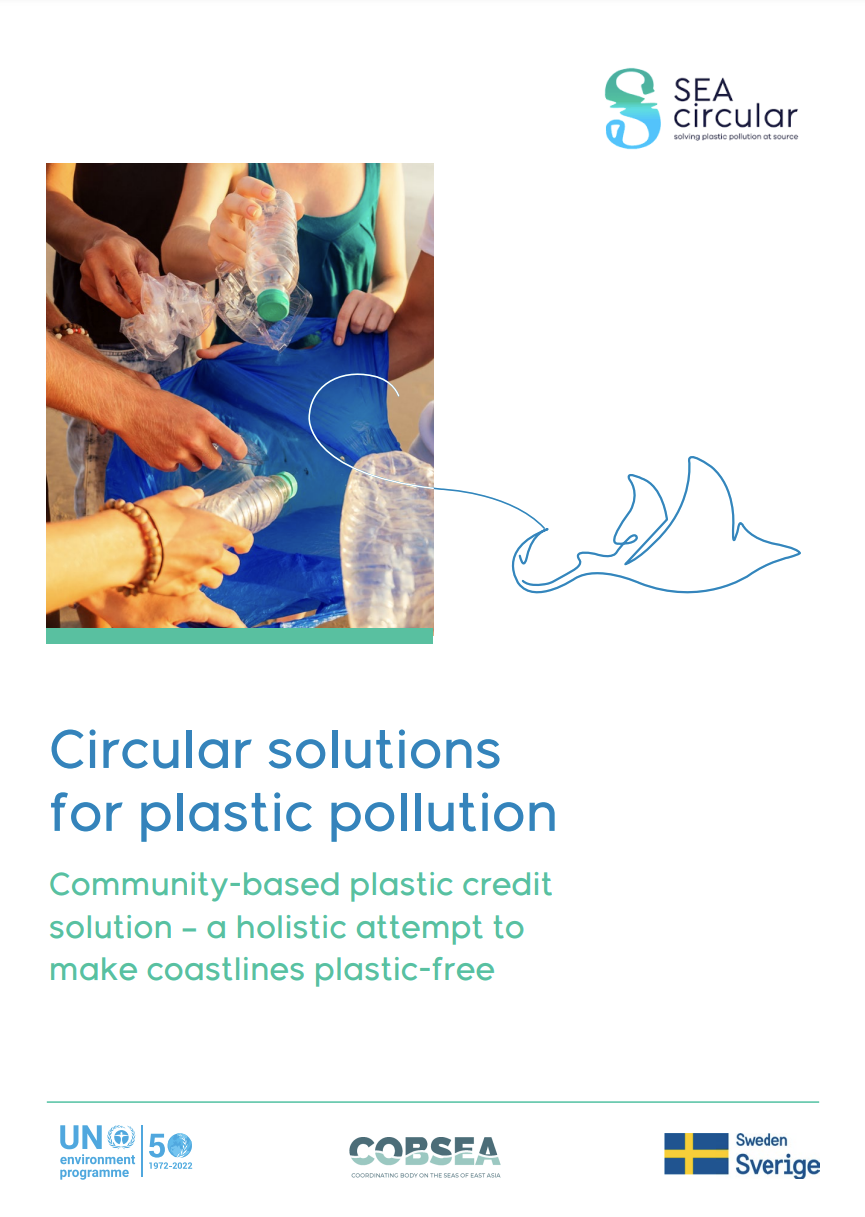This good practice case study is part of a series of knowledge products developed by the SEA circular project to showcase exemplary market-based solutions that bring about transformational changes in how plastic is managed in the value chain. This series captures circular economy approaches to addressing plastic pollution, from innovative business models to behaviour change initiatives. These approaches form part of the SEA circular project’s “circularity framework for the plastic value chain”.
Every year, 8 million tons of plastic waste pollute the world’s oceans, equivalent to one full truck of plastic waste per minute. In six of the ten member countries of the Association of Southeast Asian Nations (ASEAN) alone, 53 per cent of plastic waste remains uncollected, of which only 25 per cent is recycled.1 In terms of environmental plastic leakage, post-consumer non-recyclable waste, i.e. orphan plastics – a TONTOTON term for abandoned, single-use, mismanaged plastics that are ocean-bound and have no market value – is the most problematic.
Plastic waste contributes to 80 per cent of the litter found on Cambodia’s beaches and significantly impacts marine ecosystems and local communities, which do not have a lasting solution to the daily reality of increasing plastic waste.
To address this, TONTOTON – a programme aimed at reducing ocean-bound plastic waste – created a certified plastic credit system2 that provides a community-based solution to involve and empower the informal waste sector and local communities (particularly in coastal areas) to manage and treat non-recyclable plastics. The system complies with Zero Plastic Oceans’ two ocean-bound plastic neutrality standards (covering collection, waste management and plastic credit verification and the compensation of plastic footprints through plastic credit purchases), and is audited by Control Union, a third-party certification body. Through its eco-friendly waste-to-energy solution, the programme can handle vast quantities of non-recyclable plastic waste, creating a new market for orphan plastics and thereby promoting a circular economy to reduce plastic pollution worldwide. It is also able to help create local employment through its plastic credits, which in turn generates a regular source of income for local communities while helping businesses take responsibility for the unsolved crisis of non-recyclable mismanaged plastic pollution.


